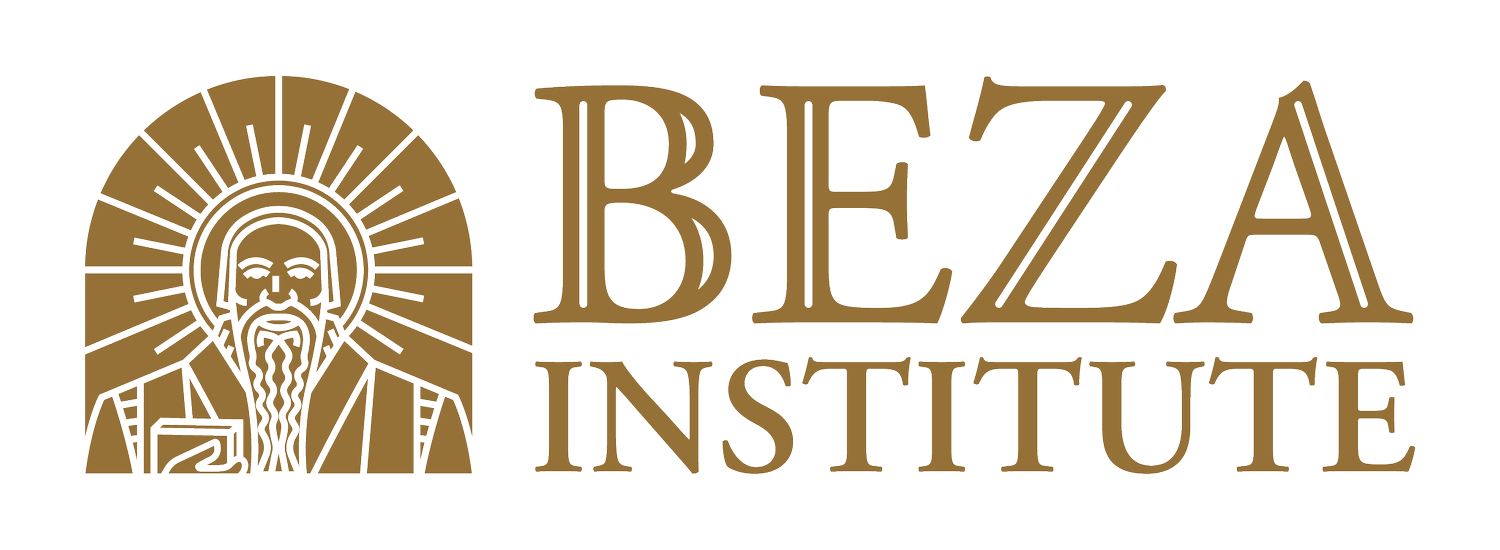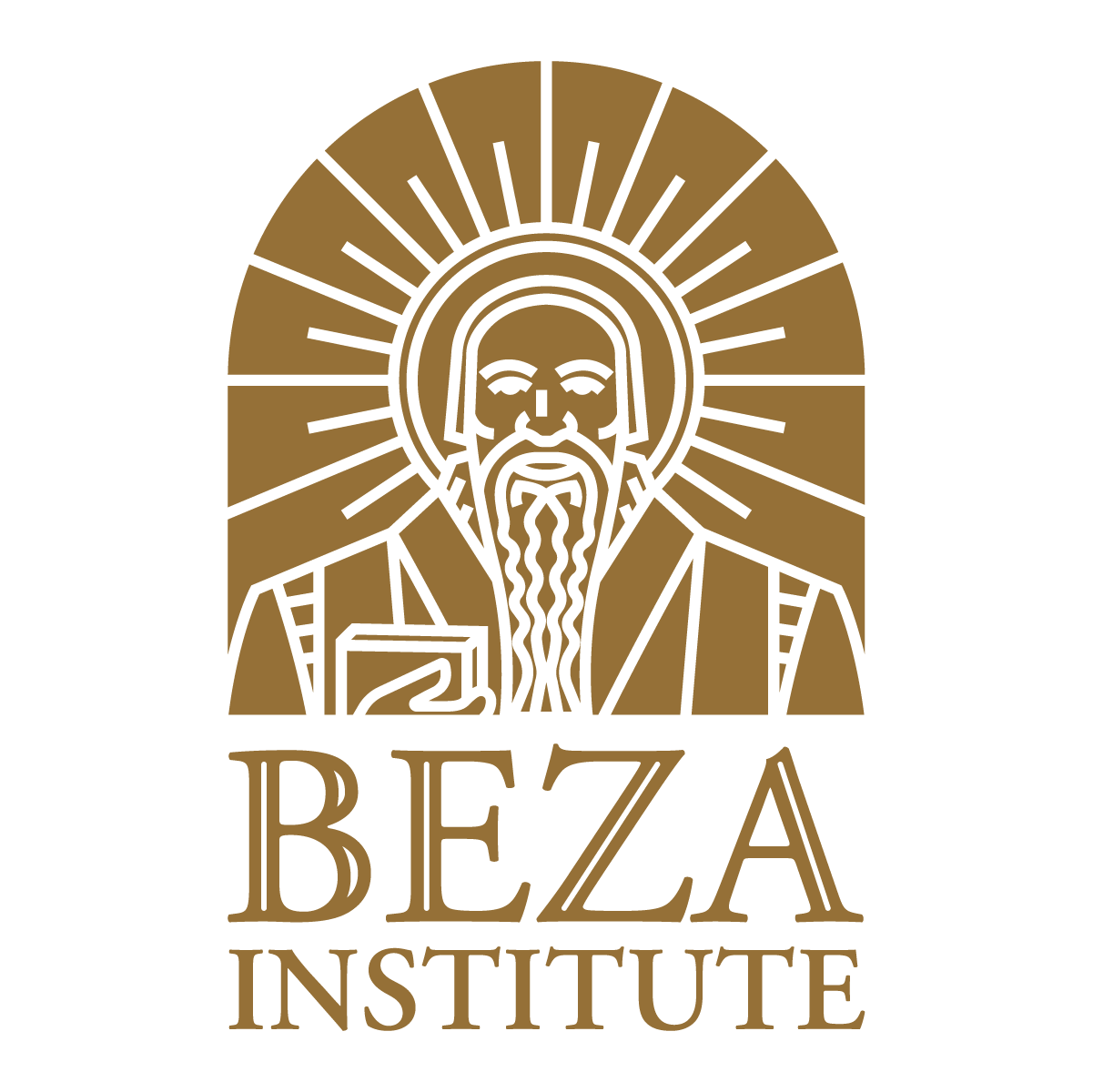A Classical, Practical Education
As students and teachers of the classical Christian tradition, we are swift to affirm that human beings are more than rational machines. As bearers of the divine image, we are called to rule the earth and dwell in fellowship with God and others. In our learning and teaching, we strive after wisdom and virtue—not merely improved prospects in the job market. We believe the good of humanity consists not primarily in prosperity and ease, but rather in glorifying God and enjoying him forever.
Such convictions, if held consistently, distinguish our approach to education from conventional alternatives. Since mankind is made for everlasting life in the presence of the living God, we question the paideia of materialism and pragmatism which dominates Western schools and colleges today. As Christians, we believe human happiness begins with fear of the Lord and an inclination of the heart toward eternal truths and eternal goods. Classical Christian education is one of many means by which we lead young people in the path of true and lasting happiness.
As our beliefs about God and the human person manifest in a distinct form of education, others call our efforts "strange," "outdated," and perhaps most of all, "impractical." Contemporary educational theory extols practicality, efficiency, and relevancy. The same is true of American culture at large. "Impractical" pursuits like art and music still have a place, but only as means of self-expression (for the artist) or sensory stimuli (for the observer). As a new age of artificial intelligence dawns, some hail "cognitive outsourcing" as a mark of civilizational progress. To most people, the rigors of classical Christian learning seem odd and superfluous because immediate utility is not the ruling concern.
Basic Christian discipleship helps us recognize and reject the worst expressions of materialism and pragmatism. Nevertheless, these worldly philosophies are the de facto orthodoxy of modern society, and no person can totally escape their influence. Classical Christian educators and all those desiring a return to the ancient paths face all kinds of resistance, both internal and external. We must, therefore, take care to understand the nature and aims of our project. Otherwise, how will we answer those who question our vision for life and learning?
In one sense, we may concede to the critics that classical Christian education is in fact "impractical," and that this is a good thing. The idea that some goods are goods in themselves—not merely for their utility—is an intuitive yet often overlooked truth. Consider the scores of modernist, secular universities whose websites proclaim the excellencies of a “well-rounded” curriculum. If utility reigns supreme, why should anyone waste time learning about something unrelated to a chosen career path? As Christians, we know man’s chief end is not economic gain. Some things are worth studying for their own sake. Therefore, we need not apologize for the alleged “impracticality” of classical learning.
On the other hand, practicality (rightly understood) should matter a great deal to classical educators. At the Beza Institute, we consider it a manifest fact that contemporary pedagogies of "practicality" often lead to the opposite of their promised outcomes. This fact is evident in America’s dysfunctional and increasingly illiterate society. As technological sophistication climbs ever upward, the vitality of our communities seems only to decline. While teachers strain for more "real-world application" in their classrooms, test scores and college admissions standards continue plunging downward year after year.
We believe the ancient paths—especially those of the Reformed Protestant and classical Western traditions—are the surest means to prepare students for the good life under the Lordship of Jesus Christ. Yet the question remains: how do we know this is the case? After all, few young people choose to pursue vocations that are primarily intellectual or academic. Most will spend their adult lives doing ordinary work in offices, on jobsites, or in the home. Shouldn’t parents and educators equip students for success in today’s economic and social landscape? Can classical education offer anything of value beyond nostalgia for the age of Socrates, Plato, and Aristotle? To answer these questions, we must identify the ends we ought to seek through education, and then ask whether the classical Christian tradition befits these ends.
Displayed on our website's homepage is the following quotation from the Beza Institute’s namesake:
Indeed, you have not gathered in this place as many of the Greeks used to do, heading to their [schools] to engage in vain endeavors, but rather, you have gathered imbued with the knowledge of the true religion and liberal arts, to be able to magnify the glory of God and to be a support to your families and an honor to your homeland. [1]
The end of Reformed classical learning, then, is threefold: to glorify God, to support a household, and to honor one’s country. At its best, education rightly orients students to these fundamental and interrelated duties.
Man’s chief duty is to glorify and enjoy his Creator. Startling the most devoted classicists, Beza calls the Greeks’ quest for wisdom “vain.” Unlike Beza’s audience, the Greeks began not with fear of the Lord but rather with faith in unaided human reason. While we rightly commend (and even seek to imitate) the classical authors for their commitment to truth and virtue, we also recognize their failure to attain the blessedness they sought. It is only by submission to the “true religion”—namely Christianity—that we may reap all the sweet and useful fruits of the liberal arts.
Beza also understands that each person lives within a network of earthly relationships and obligations. As Scripture teaches, fidelity to God entails fidelity to the family, church, and political community within which one lives. Many human relationships and obligations are unchosen endowments of God’s providence. No one, for instance, can choose the parents to whom he is born. While membership in a church, choice of a spouse, and even citizenship in a country often amount to voluntary decisions in today’s world, Christians consider these allegiances to be sacred and binding. Church membership, marriage, and citizenship all carry duties that God calls his people to fulfill with gratitude and excellence.
Living well, therefore, requires practical wisdom derived from a calibrated sense of Christian duty. It is not enough to think good and lofty thoughts; one must learn to act nobly in accord with what is right. Apart from a knowledge of God and his design for the cosmos, it is impossible to understand one’s proper place and responsibilities in the world. This is the reason classical education prizes “goodness, beauty, and truth.” These transcendentals are the stars by which the mature Christian navigates the particular matters of life.
Within this rich understanding of life in its totality, students come to understand the meaning and importance of things like work and vocation. In the secular account, work is everything because prosperity and ease are man’s best hope in this life. Formal education is valuable insofar as it improves one’s earnings potential. In the classical Christian account, work is good and meaningful because God the Creator appointed mankind to rule over his creation. Formal education is valuable because it imparts the virtues necessary for faithful lives of obedience to God and love for neighbors.
To summarize, Reformed classical education situates our daily labors and practical concerns in the grand narrative of God’s creational and redemptive work. It teaches students to lead lives of meaningful action instead of materialistic utility-maximization. Though some may call the classical Christian renewal movement “impractical” or “irrelevant,” its strength continues to grow across North America and around the globe. Parents, students, and school leaders are seeing for themselves: a classical education is, in fact, a practical education.
Endnotes
[1] Theodore Beza, quoted in R. Ward Holder, John Calvin in Context. (Cambridge, United Kingdom: Cambridge University Press, 2020), 111.

